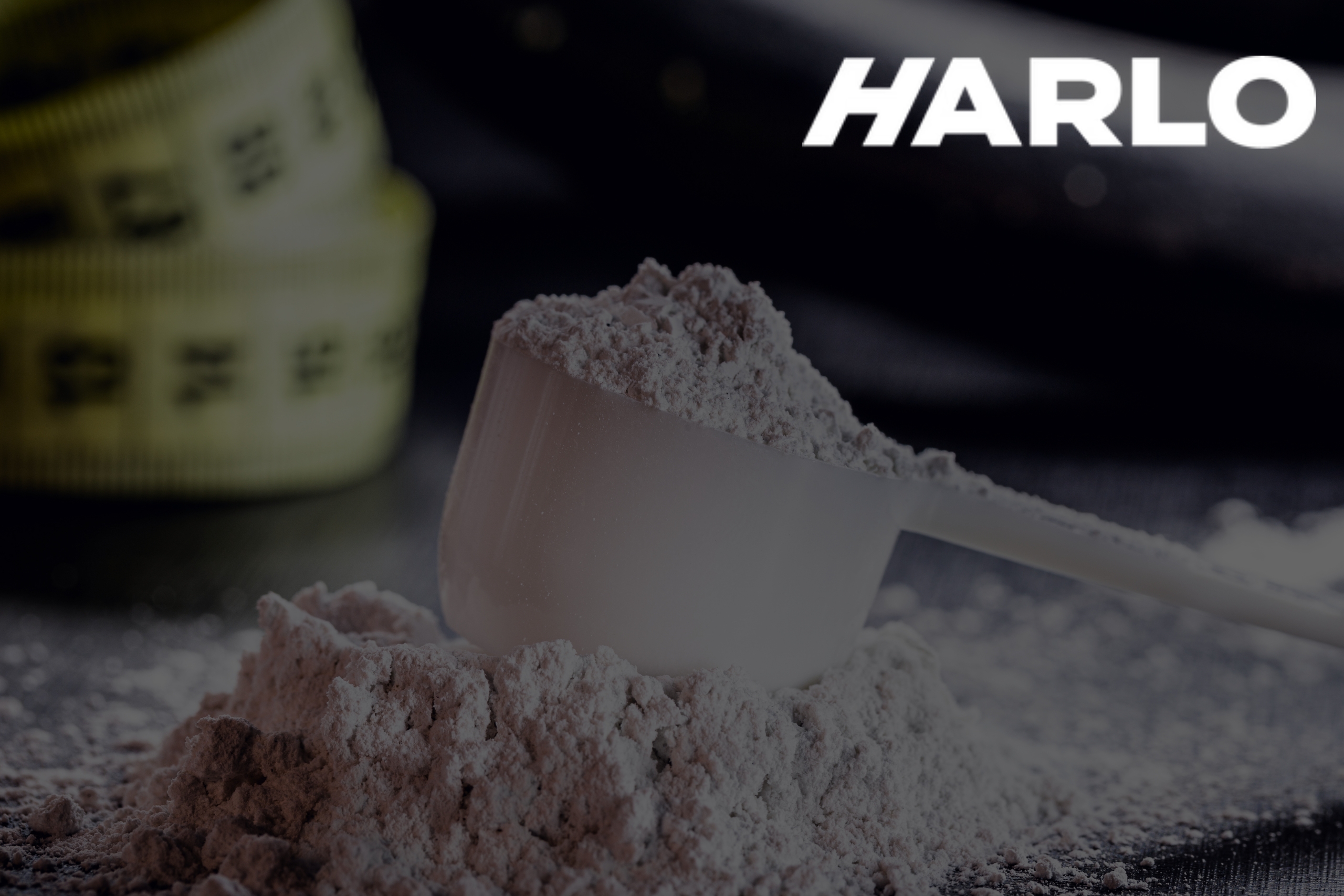For many sports and fitness enthusiasts, achieving their goals can be a daunting task. But with the right supplementation, these athletes and gym-goers may find themselves achieving more than they ever thought possible. Dietary supplements are now an important part of most athletes’ training regimes; this is because these supplements can provide key nutrients and minerals that help enhance performance and reach fitness goals faster. So if you’re looking to boost your athletic performance or take your physique to the next level, read on to learn more about the best supplements for sports and fitness enthusiasts!
What Are Dietary Supplements?
Dietary supplements are nutritional products taken by mouth to supplement the diet. They are designed to provide nutrients that may otherwise not be consumed in sufficient quantities. Dietary supplements can come in many forms, such as tablets, capsules, powders and liquids. Common ingredients include vitamins, minerals, herbs or other botanicals, amino acids and other substances that can be used to boost health and performance. While some dietary supplements are supported by scientific evidence for their benefits, it is important to note that these products do not need to undergo rigorous testing or be approved by the Food and Drug Administration before being sold. It’s therefore important for athletes and fitness enthusiasts to research the potential benefits of each supplement before taking it.
From vitamins to minerals to herbs, dietary supplements offer athletes and fitness enthusiasts the potential for a range of health benefits. But with so many options out there, it’s important to make an informed decision about what kinds of supplements you take. So stay tuned for our next article, where we’ll be discussing why sports and fitness enthusiasts should consider taking dietary supplements.
Why Should Sports and Fitness Enthusiasts Consider Supplements?
Sports and fitness enthusiasts should consider supplements for a variety of reasons. Supplements can help athletes and fitness enthusiasts improve their performance, build muscle mass, increase lean body mass, reduce fatigue during exercise, improve muscle recovery after exercise and support healthy skeletal muscle growth. Supplements are also beneficial in helping to prevent oxidative stress caused by high-intensity exercise, as well as increasing nitric oxide production which helps to enhance athletic performance. Additionally, research has suggested that certain supplements may offer additional benefits such as increased time to exhaustion and reduced perceived exertion during exercise.
In terms of what types of supplements you should take, it is important to take into consideration your particular needs and goals. For instance, those looking to build muscle may benefit from adding branched-chain amino acids or essential amino acids to their supplement regimen. Whereas those who are looking for enhanced performance may benefit from creatine or beta-alanine supplements. Since many supplements contain animal products such as fish oil or whey protein, it is important for vegans and vegetarians to make sure they read the labels carefully before purchasing any dietary supplement product.
Finally, when taking any dietary supplement it is important for athletes and fitness enthusiasts to follow recommended dosage instructions since too much of any supplement can lead to adverse effects on health. Generally speaking a safe amount of any given supplement is around 0.3g/kg of body weight per day for healthy adults – though this will vary depending on the specific type of supplement being taken.
Goals of Supplements for Athletes and Fitness Enthusiasts
For athletes and fitness enthusiasts, supplements can be an effective way to reach their health and performance goals. Supplements offer a variety of benefits such as improved energy levels, increased muscle mass and strength gains, enhanced recovery times, improved endurance during exercise, and better overall athletic performance. Additionally, certain supplements are specifically designed for particular goals such as fat loss or muscle building. Therefore, it is important for athletes and fitness enthusiasts to carefully consider their goals before deciding which type of supplement would best suit their specific needs.
When taking any dietary supplement it is also important to ensure that the recommended dosage instructions are followed as too much of any supplement can lead to adverse effects on health. As a general rule of thumb, a safe amount of any given supplement is around 0.3g/kg of body weight per day for healthy adults – though this will vary depending on the specific type of supplement being taken. Finally if you have any questions regarding a particular supplement it is always best to consult with your doctor or healthcare provider before starting any new supplementation regimen.

Types of Supplements
When it comes to fitness and sports, dietary supplements can be a great way to reach your goals. There are a variety of supplements tailored for specific needs, such as muscle growth or fat loss. The most popular supplement categories include essential amino acids, fatty acids, and branched-chain amino acids. Each of these provides unique benefits to athletes and fitness enthusiasts in terms of enhanced muscle growth and recovery, increased endurance during exercise, improved lean body mass, better time to exhaustion during high-intensity exercise, reduced oxidative stress levels, and improved performance overall.
In addition to the above-mentioned supplements, some other popular choices are beta-alanine supplements for nitric oxide production, creatine supplements derived from animal products for improved muscle power and energy levels, as well as protein intakes on a regular basis for additional benefits such as improved immune system functioning.
When taking any dietary supplement it is important to follow the recommended dosage instructions as too much of any supplement can lead to adverse effects on health. Generally speaking a safe amount is around 0.3g/kg of body weight per day for healthy adults but this may vary depending on the type of supplement being taken. If you have any questions regarding a particular supplement it is best to consult with your doctor or healthcare provider before starting any new supplementation regimen.
Branched-Chain Amino Acids (BCAAs)
Branched-Chain Amino Acids, also known as BCAAs, are essential amino acids that provide a number of health benefits for athletes and fitness enthusiasts. They are composed of three main amino acids: leucine, isoleucine, and valine. These BCAAs are found naturally in food sources such as meat, eggs, dairy products and legumes and can also be supplemented through powders or capsules.
BCAAs can help to improve muscle growth by increasing protein synthesis within the body. This helps to ensure that your muscles receive the nutrients they need in order to grow bigger and stronger. BCAAs can also reduce fatigue levels during exercise by providing additional energy for your muscles to use. Additionally, studies have shown that taking BCAAs before or after exercise may help to reduce muscle soreness and accelerate muscle recovery time.
Overall, adding BCAAs into your daily routine can be a great way to maximize your athletic performance level while also enjoying the many health benefits associated with them. Just remember to always follow dosage instructions provided on supplement labels and consult with your doctor if you have any questions about taking them!
Essential Amino Acids (EAAs)
Essential Amino Acids, or EAAs, are an important part of any athlete’s nutrition plan. EAAs are made up of nine different amino acids that the body cannot produce on its own. These include histidine, isoleucine, leucine, lysine, methionine, phenylalanine, threonine, tryptophan and valine.
EAAs are essential for building muscle mass as well as maintaining lean body mass. The body uses them to synthesize proteins which in turn helps with muscle growth and repair after exercise. They also help to improve time to exhaustion during high-intensity exercise and reduce oxidative stress levels caused by intense physical activity.
EAAs can be found naturally in animal products such as meat and eggs, but for those who don’t eat these foods regularly there are EAA supplements available. Taking these supplements on a regular basis may provide additional benefits such as increased nitric oxide production and improved protein intakes. It is generally recommended that adults take around 10-12g of EAAs per kilogram of body weight each day for optimal performance improvements.
In conclusion in order to get the most out of your workouts it is important to ensure you are getting enough EAAs through your diet or supplementation. Doing so will help you maximize your athletic performance while reaping the many health benefits associated with them!
Fatty Acids
Fatty acids are an essential part of any athlete’s nutrition plan. Fatty acids are long-chain molecules made up of carbon, hydrogen and oxygen atoms. They provide the body with energy and help to regulate hormones, as well as being important for a healthy heart, brain and immune system.
There are three main types of fatty acids; monounsaturated, polyunsaturated and saturated. Monounsaturated fatty acids are beneficial for reducing cholesterol levels while polyunsaturated fatty acids help to reduce inflammation in the body. Saturated fats should be kept at lower levels due to their association with high cholesterol levels.
Good sources of fatty acids include oily fish such as salmon or mackerel, nuts and seeds like almonds, walnuts and chia seeds and avocados. Eating a balanced diet that incorporates these foods will help ensure you get enough fatty acids in your diet. Alternatively there are also dietary supplements available which can provide additional benefits including improved joint health, skin hydration and fat burning potential.
In conclusion it is important to make sure you’re getting enough fatty acids in your diet for optimal performance benefits and overall health. Eating a balanced diet rich in these foods or supplementing with them can help you achieve this goal!
Beta-Alanine Supplements
Beta-alanine supplements are a popular choice for athletes and fitness enthusiasts alike. This amino acid helps to increase skeletal muscle carnosine levels, which can in turn improve athletic performance and muscle mass. With daily consumption of beta-alanine supplements, studies have shown that it can lead to improved high-intensity exercise performance as well as increased lean body mass.
Studies have also found that beta-alanine supplementation leads to improved time to exhaustion during high intensity exercises, reducing the amount of oxidative stress caused by exercise. Beta-alanine is naturally found in animal products including beef, chicken breast and fish, but the amounts are often too low for most athletes and fitness enthusiasts who need higher doses for optimal results. That’s why taking a supplement is usually recommended if you’re looking to increase your performance or build muscle mass.
The dosage used in studies typically ranged from two to six grams per day, depending on the individual’s weight and goals. As a general rule of thumb, four grams per day is usually sufficient for healthy adults weighing up to 135 pounds (61 kilograms) while heavier individuals may require more than this. When taken regularly on a regular basis over time, beta-alanine can help to promote muscle growth and recovery while also increasing nitric oxide production which can help with blood flow and oxygen delivery throughout the body.
Creatine Supplements
Creatine supplements are popular amongst athletes and fitness enthusiast alike, as they can help to improve performance, muscle strength and endurance. Creatine is an amino acid naturally found in the body, which helps to supply energy to cells. When taken as a supplement, creatine has been found to increase phosphocreatine levels in the body, which serves as a source of energy during high-intensity exercise.
Studies have also shown that creatine can help to reduce fatigue and improve recovery time after exercise. The recommended dosage of creatine varies depending on the individual’s weight and goals but as a general rule of thumb it is advised to take 3-5g per day for optimal results. Additionally, it is best taken with carbohydrates or protein for maximum absorption into the muscles.
Creatine supplements are safe for most healthy adults when taken correctly and within recommended doses. It may cause minor stomach upset if taken on an empty stomach so it’s best consumed with food or a shake after workouts. Also be sure to drink plenty of water throughout the day when taking creatine supplements in order to avoid dehydration and other potential side effects such as muscle cramps or headaches.
Health Benefits of Taking Supplements
Supplements are an important part of any fitness enthusiast’s diet and can provide a range of health benefits. Supplements can help to boost muscle growth, increase muscle recovery time, provide essential fatty acids and amino acids, and improve overall athletic performance. Additionally, some supplements have been shown to reduce oxidative stress in the body as well as increase nitric oxide production for improved blood flow.
When it comes to supplementation, it’s important to know what your goals are and choose the best supplement for you. For example, if you’re looking to build lean body mass then branched-chain amino acids (BCAAs) would be a good choice as they have been shown to improve muscle growth and time to exhaustion during exercise. Or if you want additional benefits such as improved cardiovascular health then beta-alanine supplements may be more suitable as they can help with nitric oxide production and increased oxygen delivery in the body.
It’s also important to note that most dietary supplements are derived from animal products so if you’re vegan or vegetarian then it would be worth investigating plant-based alternatives first before deciding on which supplement is right for you. In general, it is advised that adults should take between 0.8 – 1 gram of protein per kilogram of body weight on a regular basis in order to achieve optimal results from their supplementation routine.
Improved Muscle Mass and Performance
For those looking to increase their muscle mass and performance, dietary supplements can be a great tool. Many supplements are designed to help boost muscle growth, aid in recovery times, increase strength and endurance, and improve overall athletic performance. Some of the most popular supplements for improved muscle mass include essential amino acids such as BCAAs (branched-chain amino acids) which have been shown to build muscle and improve time to exhaustion during exercise.
Creatine is another supplement that is often used by fitness enthusiasts as it has been linked to increased strength and power during high-intensity exercise. Other beneficial supplements include beta-alanine, which can help with nitric oxide production and oxygen delivery in the body, as well as protein intake for healthy adults which should be taken between 0.8 – 1 gram per kilogram of body weight regularly to get optimal results from supplementation. So if you’re looking to take your fitness goals to the next level then consider incorporating some of these great dietary supplements into your routine!

Conclusion
There are various dietary supplements that can be advantageous for sports and fitness enthusiasts, including branched-chain amino acids, essential amino acids, fatty acids, and beta-alanine and creatine supplements, which can enhance athletic performance and increase muscle mass. Additionally, these dietary supplements may also provide additional health benefits such as increasing lean body mass and reducing oxidative stress.
When choosing a supplement, it is important to consider the desired outcome and consult a qualified health professional to ensure that the product is safe for healthy adults. Finally, it is important to remember that dietary supplements should not replace a balanced diet and regular physical activity; they should be used in conjunction with other healthy lifestyle habits.




